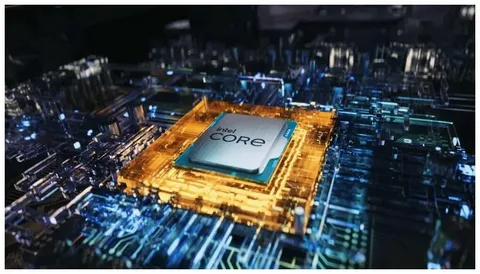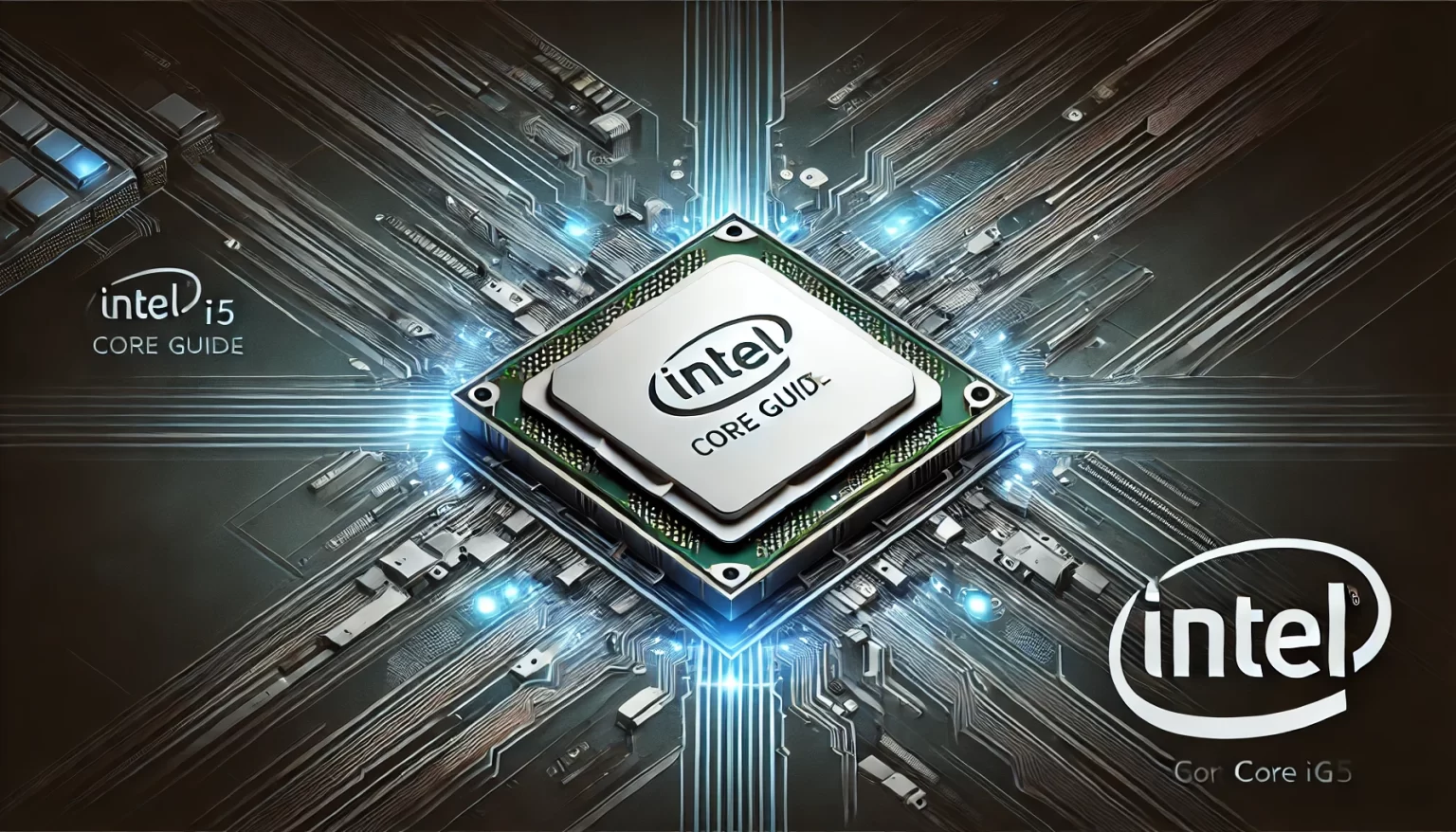Choosing the right processor can feel overwhelming. Among the many options, the Intel Core i5 is a reliable and versatile choice for various computing needs. Whether you’re working on daily tasks, gaming, or handling light video editing, the Intel Core i5 offers a balance of performance and affordability. But which Generation or model suits you best? Let’s break it down to ensure you find your perfect match.
Why Choose the Intel Core i5?
The Intel Core i5 processor is known for striking the ideal balance between price and performance. Positioned between the i3 and i7 families, it’s designed for users who demand speed without breaking the bank. While the Intel Core i3 focuses on basic tasks, and the i7 caters to power users, the i5 offers a middle ground.

Whether upgrading your laptop, building a desktop, or looking for a pre-built option, the Intel Core i5 provides smooth multitasking, faster processing speeds, and an optimal gaming experience. But, as we’ll explore, its value lies in finding the proper Generation and configuration to suit your needs.
Understanding Intel Core i5 Generations
Intel releases new generations of processors to improve speed, efficiency, and features. Each Generation builds on its predecessor, making the newer chips faster and more power-efficient. The latest Intel Core i5 chips feature cutting-edge technologies like improved architecture, support for faster RAM, and better-integrated graphics.
For example, 10th-generation Intel Core i5 models brought enhanced AI capabilities, while the 12th Generation introduced hybrid cores, combining performance and efficiency cores for better task handling. Choosing the proper Generation depends on your intended use—gaming, professional work, or casual browsing.

How Does It Compare?
- X1 Carbon i5 vs i7: The ThinkPad X1 Carbon models are renowned for portability and power. Comparing the i5 vs i7 in these laptops, the i7 may seem enticing with its higher clock speeds, but the i5 balances performance and battery life better for typical users.
- Intel Core i3 vs i5: While the Intel Core i3 works for basic tasks like web browsing, upgrading to the Intel Core i5 is necessary for faster performance, better multitasking, and gaming.
- i5-3570 vs i7-6700HQ: When comparing older models, such as the i5-3570 vs i7-6700HQ, the i7 offers better performance for demanding tasks. However, the i5 often suffices for standard workloads.
Intel Core i5 Performance in Real-World Scenarios
Everyday Computing
The Intel Core i5 effortlessly handles daily tasks like web browsing, video streaming, and office applications. Most models now feature Turbo Boost technology, ensuring faster speeds when needed without wasting power.
For students or professionals requiring affordable yet powerful laptops, the Intel Core i5 from the 10th or 11th Gen offers a stellar combination of speed and efficiency.
Gaming
The Intel Core i5 is a popular choice for gaming, especially among budget-conscious gamers. Pair it with a good GPU, and it can handle titles like Fortnite, Valorant, and even AAA games at decent frame rates. Advanced generations like the 12th and 13th Gens feature higher core counts, making them better suited for modern gaming requirements.
Gamers comparing i5 vs i7 may find the i7 marginally faster in FPS, but the price difference often outweighs the minor gains.
Productivity and Light Editing
The Intel Core i5 shines in productivity tasks, handling software like Microsoft Office, Zoom, and light photo editing. While video editors may prefer the i7 for rendering-heavy workflows, the i5 suffices for beginners or casual editors.
In laptops like the X1 Carbon, the i5 vs i7 debate often boils down to whether you value slightly better speeds or a cooler, more energy-efficient device.

How to Choose the Right Intel Core i5 for You
Finding the perfect Intel Core i5 involves identifying your usage needs:
- Casual Users: Opt for 10th or 11th Gen Intel Core i5 chips for affordability and reliable performance in daily computing.
- Gamers: Go for 12th or 13th Gen models for enhanced core counts, ensuring smoother gameplay and better multitasking.
- Professionals: Choose configurations with more cores, higher clock speeds, and newer generations if you run demanding applications.
Important Features to Consider
- Clock Speed: Higher GHz ensures faster processing.
- Cores: More cores allow better multitasking and improved performance in modern software.
- Graphics: Integrated graphics like Intel’s Iris Xe (found in newer models) support casual gaming and 4K video playback.
The i5 Generational Leap: What You’re Getting
10th Gen Intel Core i5
Designed for multitasking and improved AI performance, these chips are ideal for laptops like the Dell XPS 13. They’re efficient, allowing all-day usage without frequent charging.
12th Gen Intel Core i5
The 12th-generation chips were a game-changer. They introduced a hybrid architecture with performance and efficiency cores, improving responsiveness and battery life simultaneously, making them a favourite for gamers and professionals.
13th Gen Intel Core i5
Building on its predecessor, the 13th Gen offers improved clock speeds and better support for DDR5 RAM, providing unparalleled performance for intensive workloads.

Intel Core i5 FAQs
Which Generation of Intel Core i5 is best for gaming?
The 12th or 13th Gen Intel Core i5 is ideal for gaming due to higher core counts and better multithreading capabilities.
How does the Intel Core i5 compare to the i7?
The i7 offers better performance in intensive tasks, but the Intel Core i5 suffices for everyday use, casual gaming, and moderate workloads.
Can the Intel Core i5 handle video editing?
Yes, the Intel Core i5 handles video editing well in light to moderate. For heavy editing, the i7 is recommended.
Is upgrading from an Intel Core i3 to i5 worth it?
Absolutely. The jump to an Intel Core i5 means faster speeds, better multitasking, and enhanced productivity.
What are the differences between i5-3570 and i7-6700HQ?
The i7-6700HQ is better for demanding tasks, while the i5-3570 is a solid, essential computing choice.
Conclusion
The Intel Core i5 remains a top choice for users who need reliable performance across various tasks without overspending. Whether comparing the i5 vs i7 or evaluating its benefits against older models like the i5-3570 vs i7-6700HQ, the Intel Core i5 consistently delivers. For those still deciding, identifying your needs and understanding the generational differences will ensure you choose the right model. Ready to make your choice? The Intel Core i5 won’t disappoint.


